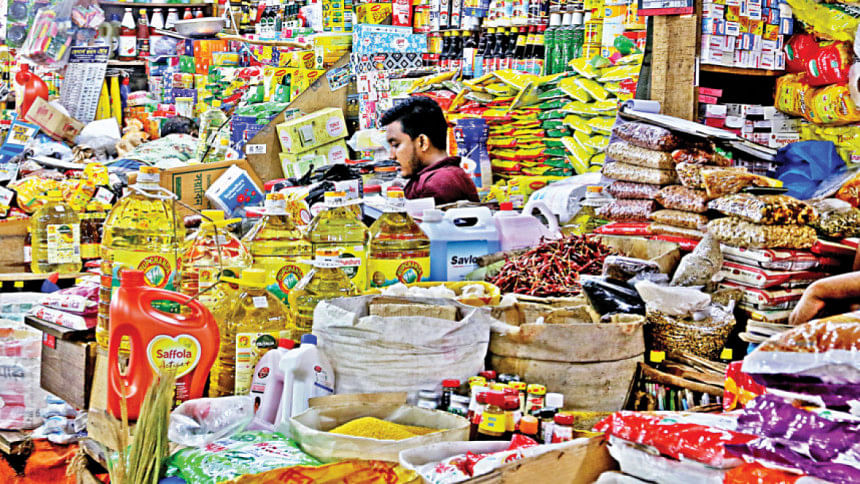Essentials’ prices spiral as supply chain disrupted

The ongoing unrest centering the quota reform movement has ruptured the supply chain of essentials and other commodities, causing their prices to soar.
Take the case of Mohammad Rajib, an onion wholesaler at Karwan Bazar. He had three truckloads of onions sent from Magura and Rajbari to Dhaka but only one truck reached the capital.
Like Rajib, almost all onion suppliers are on the same boat. Subsequently, the price of the local variety of onion has ticked up by Tk 2 a kg to Tk 100 in Dhaka's kitchen markets.
"If the situation persists, the price will go up every day," Rajib said.
Yusuf Bepary, a potato wholesaler at the same market, said he has been trying to bring the tuber from Bogura and Rajbari for the last two days as he could not find a truck even after agreeing to pay a substantial premium.
Usually the fare is Tk 18,000; now, it has gone up to Tk 24,000.
Yet, Yusuf could not find a trucker to come to Dhaka amid the countrywide blockade and violence.
Similarly, Mohammad Faruk, a rice wholesaler at Mirpur-1 kitchen market, was desperately searching for a truck to bring the rice he brought from Noagaon, Dinajpur and Kushtia.
Although the price of rice is yet to increase, Faruk is expecting it to go up if the current deadlock continues until next week.
Belayet Hossain, a wholesaler of pulse, oil, flour and sugar at the same market, said he could get any product from dealers since Thursday night.
"If the situation does not improve within Saturday, then the prices of products will go up," he said.
This correspondent found that chicken, fish and vegetables became dearer at Dhaka's kitchen markets yesterday.
Mohammad Rubel, a broiler chicken trader at Duaripara bazar, said the price has increased by Tk 10 to Tk 15 per kg in a day.
Due to supply shortage, the prices of fish such as rui, katla, hilsa have increased by Tk 100 to Tk 150 per kg, said Awlad Hossain, a fish trader at Hatirpool kitchen market.
The strike has affected the supply of commodities causing shortage of products, said Murtoza Zaman, chief executive of Unimart, one of the leading supermarkets with eight outlets.
"Our staff cannot come to the stores -- three of our employees have been injured during clashes," he said.
Bishajit Saha, head of corporate affairs of City Group, one of the largest commodity importer and processor in Bangladesh, said they could deliver only 35 to 40 percent of their usual supply of goods on Thursday and Friday.
For now, they are not producing commodities as per demand fearing they would not be able to supply during the spat of violence, he added.

 For all latest news, follow The Daily Star's Google News channel.
For all latest news, follow The Daily Star's Google News channel. 



Comments